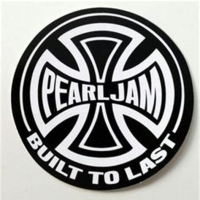Non-fungible token the next big thing?
Comments
-
I dropped about $350 on some Knicks and a couple packs. I look at it like bitcoin. Should have thrown a few hundred at that huh?pjsteelerfan said:
Oh I agree, I don't plan to spend a couple hundred bucks on a .gif that literally anyone could make in say MS Paint or photoshop just because it has a limited code attached to it. But it has been fun to watch this happen. And people are making money on it, so probably not going away. or not anytime soon.tempo_n_groove said:
Why would you pay for a digital poster when you can just screen shot it from somewhere else? It's really a dumb idea that critical thinking should be dismissing after the initial sell off happens.pjsteelerfan said:Its growing in the art world too, and some are selling for crazy amounts. I would not be surprised to see digital gig posters with tickets one day, as much as that would suck.0 -
I would like some non-fungible toes.
The worst of times..they don't phase me,
even if I look and act really crazy.0 -
Who am I to tell you what to do with your money? Maybe it will work out and maybe it won't. I'm sure a lot of people are hoping its the next bitcoin.RS65573 said:
I dropped about $350 on some Knicks and a couple packs. I look at it like bitcoin. Should have thrown a few hundred at that huh?pjsteelerfan said:
Oh I agree, I don't plan to spend a couple hundred bucks on a .gif that literally anyone could make in say MS Paint or photoshop just because it has a limited code attached to it. But it has been fun to watch this happen. And people are making money on it, so probably not going away. or not anytime soon.tempo_n_groove said:
Why would you pay for a digital poster when you can just screen shot it from somewhere else? It's really a dumb idea that critical thinking should be dismissing after the initial sell off happens.pjsteelerfan said:Its growing in the art world too, and some are selling for crazy amounts. I would not be surprised to see digital gig posters with tickets one day, as much as that would suck....got a mind full of questions and a teacher in my soul...0 -
Or at the PJ fallasheep?RS65573 said:
I dropped about $350 on some Knicks and a couple packs. I look at it like bitcoin. Should have thrown a few hundred at that huh?pjsteelerfan said:
Oh I agree, I don't plan to spend a couple hundred bucks on a .gif that literally anyone could make in say MS Paint or photoshop just because it has a limited code attached to it. But it has been fun to watch this happen. And people are making money on it, so probably not going away. or not anytime soon.tempo_n_groove said:
Why would you pay for a digital poster when you can just screen shot it from somewhere else? It's really a dumb idea that critical thinking should be dismissing after the initial sell off happens.pjsteelerfan said:Its growing in the art world too, and some are selling for crazy amounts. I would not be surprised to see digital gig posters with tickets one day, as much as that would suck.0 -
Maybe it’s a millennial thing we just don’t get, but they are being groomed to accept ie streaming.Bridge Benefit 1994, San Francisco 1995, San Diego 1995 1 & 2, Missoula 1998, Los Angeles 2000, San Diego 2000, Eddie Vedder/Beck 2/26/2002, Santa Barbara 2003, Irvine 2003, San Diego 2003, Vancouver 2005, Gorge 2005, San Diego 2006, Los Angeles 2006 1 & 2, Santa Barbara 2006, Eddie Vedder 4/10/08, Eddie Vedder 4/12/08, Eddie Vedder 4/15/08, 7/12/2008, SF 8/28/09, LA 9/30/09, LA 10/1/09, LA 10/06/09, LA 10/07/09, San Diego 10/09/09, Eddie Vedder 7/6/2011, Eddie Vedder 7/8/2011, PJ20 9/3/2011, PJ20 9/4/2011, Vancouver 9/25/2011, San Diego 11/21/13, LA 11/24/13, Ohana 9/25/21, Ohana 9/26/21, Ohana 10/1/21, EV 2/17/22, LA Forum 5/6/22, LA Forum 5/7/22, EV 10/1/22, EV 9/30/230
-
My new KOL record is on its way. That’s all I need for now. Read this last night on RS and like the intention behind it, but isn’t for me.www.cluthelee.com0
-
exactlyPJammer4life said:Maybe it’s a millennial thing we just don’t get, but they are being groomed to accept ie streaming.www.RLMcDaniel.com
1996: Ft Lauderdale
1998: Birmingham
2000: Charlotte, Tampa
2003: Tampa, Atlanta, Phoenix
2004: Kissimmee
2008: West Palm Beach, Bonnaroo, Columbia
2010: MSG2
2012: Music Midtown
2014: Memphis2016: Ft. Lauderdale, Miami, Jacksonville, JazzFest
2018: Wrigley 1, Fenway 1
2022: Nashville
2023: Ft. Worth II
2024: Baltimore
2025: Hollywood II0 -
Last week Greg Mike, an ATL-based artist, offered a NFT drop of his artwork where buyers purchased a physical frame that displayed limited edition images. Blockchain of the images is encrypted into the physical frames, and the frames list the edition number of the limited run. The frames went for thousands and instantly sold out. Prior to the sale going live you had to submit a lottery request to purchase one of the pieces of 'artwork' (I stayed away from this as they were way beyond my pay grade) and upwards of 8,000 people were in queue to be one of the thirty purchasers paying around 2K each. Crazy stuff, no doubt.
I don't pretend to understand it all but am definitely fascinated to see how it all evolves. At this early stage in the game I'd much prefer to own/hold/touch/frame a physical poster, for example, as opposed to investing in a digital image of it. In the words of Chuck D, "What Chu Gonna Do When the Grid Goes Down?" On the flip side....you wouldn't have to worry about the post office dinging corners or losing a package LOL
https://niftygateway.com/collections/gregmike
0 -
Anyone else hear Beavis and Butthead giggling saying the word "fungible"?

www.cluthelee.com0 -
https://www.businessinsider.com/bitcoin-owner-who-lost-password-made-peace-potentially-huge-loss-2021-1
If this dude can lose upwards of $220 million worth of bitcoin, what the hell hope do I have? I would be so pissed if I had a "front row for life at Pearl Jam shows" non-fungible token that required a password -- which I would invariably forget. Or I would need to input the passcode to view my digital concert posters from shows that I watched online whilst warming my feet in my digital PJ socks and playing with my Falla Sheep characters.....what in the actual f*ck is going on....
I will yell "boomer" at myself as I leave....0 -
I agree, for concerts, tickets, posters/art, it stinks. For trading cards, I think its neat.0
-
Although there’s been diminishing returns with KoL for a few albums now, I might take a crack at the vinyl just for curiosity’s sake. Kinda fun the limited vinyl is only out for 2 weeks then gone. Title is back to 5 syllables so that’s promising!1996-09.22; 1998-06.14,07.02,07.13,07.14,08.17,08.18; 2000-08.18,08.20,10.11,10.27,10.28; 2003-04.23,04.26,06.18,06.19,06.22; 2004-10.02,10.03,10.05; 2006-05.16,05.17,05.19,05.20,06.23,06.24; 2007-08.05; 2009-08.23,08.24,09.28,10.31; 2010-05.06,05.07; 2011-09.03,09.04; 2013-07.19; 2014-10.01; 2016-04.26,08.20,08.22; 2018-08.18, 08.20; 2022-09.17; 2023-09.05, 09.07; 2024-08.260
-
Gold vinyl pic is up on the yellow heart site looks pretty cool and proceeds go to live nation crew fund.1996-09.22; 1998-06.14,07.02,07.13,07.14,08.17,08.18; 2000-08.18,08.20,10.11,10.27,10.28; 2003-04.23,04.26,06.18,06.19,06.22; 2004-10.02,10.03,10.05; 2006-05.16,05.17,05.19,05.20,06.23,06.24; 2007-08.05; 2009-08.23,08.24,09.28,10.31; 2010-05.06,05.07; 2011-09.03,09.04; 2013-07.19; 2014-10.01; 2016-04.26,08.20,08.22; 2018-08.18, 08.20; 2022-09.17; 2023-09.05, 09.07; 2024-08.260
-
I’d love to support this but I don’t have a virtual wallet or really know what the hell this stuff is. Maybe I’ll just be old school and watch on Discogs to see how much this goes forGold vinyl pic is up on the yellow heart site looks pretty cool and proceeds go to live nation crew fund.0 -
There was a segment on NPR this morning about this. If you are a collector, or enjoy having something exclusive, then I guess it makes sense.0
-
Interested in buying a copy but still no patience and understanding of this. To use that NFT app on FireFox I must agree for the app to view all my online activity? Ah no.Gold vinyl pic is up on the yellow heart site looks pretty cool and proceeds go to live nation crew fund.0 -
With how damaging to the environment this could be, I don't think Pearl Jam would be into it...
The Better Band Podcast: BetterBandPod.com
Apple Podcasts: https://apple.co/3yVFPcY
Google Play: https://podcasts.google.com/feed/aHR0cHM6Ly9tZWRpYS5yc3MuY29tL2JldHRlcmJhbmRwb2QvZmVlZC54bWw
1995: 6.22 Sacramento, CA
1997: 11.14 Oakland, CA (Rolling Stones)
1998: 7.10 San Diego, CA; 7.16 Sacramento CA
2000: 10.22 Las Vegas, NV; 10.25 San Diego, CA; 10.28 San Bernardino, CA; 10.31 Mountain View, CA
2003: 6.01 Mountain View, CA; 6.02/6.03 Irvine, CA; 6.05 San Diego, CA; 6.06 Las Vegas, NV
2006: 7.06 Las Vegas, NV; 7.16 San Francisco, CA2013: 11.26 Oakland, CA2022: 5.18 Sacramento, CA0 -
Branden said:With how damaging to the environment this could be, I don't think Pearl Jam would be into it...
I hope they don't sign up either. But you never know.
0 -
they already have whether they like it or not. Those tickets whirling around unique and constantly updating barcodes in your digital wallet run on block chain technology.demetrios said:Branden said:With how damaging to the environment this could be, I don't think Pearl Jam would be into it...
I hope they don't sign up either. But you never know.
https://www.prnewswire.com/news-releases/ticketmaster-acquires-blockchain-ticketing-solution-upgraded-300732863.html
His eminence has yet to show.
http://www.hi5sports.org/ (Sports Program for Kids with Disabilities)
http://www.livefootsteps.org/user/?usr=36520 -
You lost me at "fungible".0
Categories
- All Categories
- 149.2K Pearl Jam's Music and Activism
- 110.3K The Porch
- 287 Vitalogy
- 35.1K Given To Fly (live)
- 3.5K Words and Music...Communication
- 39.4K Flea Market
- 39.4K Lost Dogs
- 58.7K Not Pearl Jam's Music
- 10.6K Musicians and Gearheads
- 29.1K Other Music
- 17.8K Poetry, Prose, Music & Art
- 1.1K The Art Wall
- 56.8K Non-Pearl Jam Discussion
- 22.2K A Moving Train
- 31.7K All Encompassing Trip
- 2.9K Technical Stuff and Help














